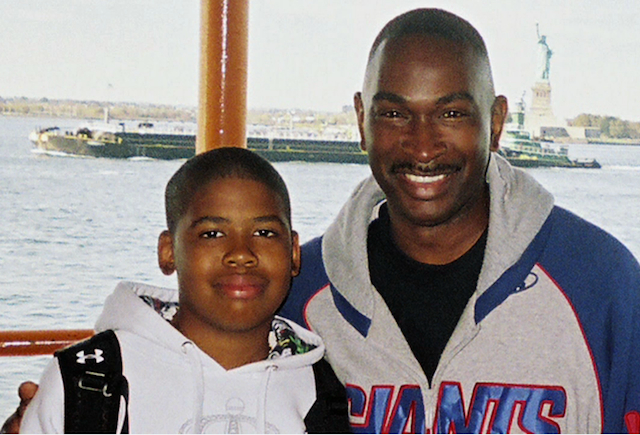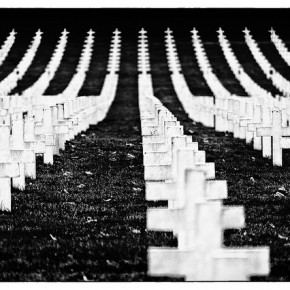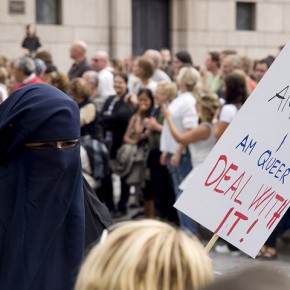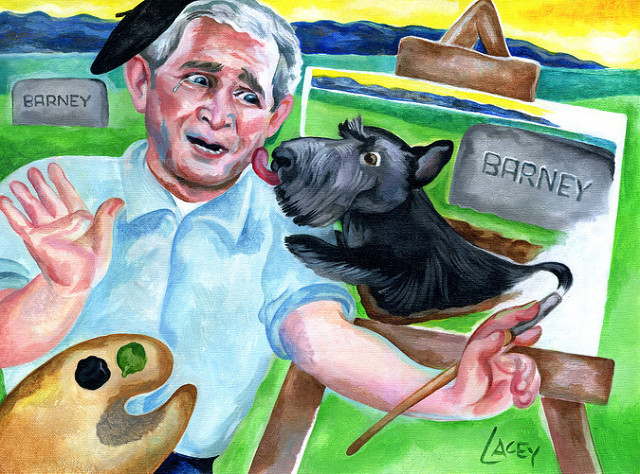Michael Dunn was convicted of three counts of attempted homicide, and one count of firing a weapon into an occupied car. The jury was unable to come to a decision on the main charge, which was the first degree murder of 17-year old Jordan Davis. The three attempted homicide charges each carry a maximum prison term of 30 years, the other, a maximum of 15 years. Whatever happens, Dunn is likely to be in prison for a long time.
Still, it’s worrisome that the jury was hung on the murder charge. Putting aside the fact that the message of the combined verdicts is “if you shoot, you’d better not miss,” the fact that the jury was not permitted to see Michael Dunn’s true racism likely influenced that outcome. Dunn’s views were aired on a web site set up by friends and family to support him, and in letters he sent to his family while awaiting trial. There’s no mistaking them for what they are.
In his writings, Dunn repeatedly refers to “thugs” and “thug culture.” We’ve been hearing that word a lot lately, here in the United States. I suspect we’ll continue to hear it for some time. It’s the new code word, because if you get caught saying “nigger” you get in trouble. So, racists find other ways to express their hate. That may seem all well and good, but the problem is that it serves to obfuscate racism, to cloak it, and to make it easier for those who want to believe we have magically evolved into a color blind society.
This 21st century form of ugliness manifests itself most obviously in the murders of Jordan Davis and, before him, of Trayvon Martin, not to mention countless other young black men, whose names don’t make it into the media. Hate crimes aren’t the only example we have of this prejudice. One can find traces of it, however subtle, throughout American culture. Indeed, it can be hard to identify, confounding many a well-meaning person.
Take, for example, the recently-released National Football League report, investigating the culture of the Miami Dolphins. Since November of 2013, controversy has broiled around a player, Richie Incognito, and some of his teammates, who were accused of having harassed another teammate, Jonathan Martin, resulting in his departure from the team. Dubbed the Wells Report, the NFL findings confirmed that Incognito had crossed the line between the sorts of practical joking that is commonplace in football, into real harassment.
While the matter was under investigation, there was much discussion of the various texts and voicemails that the public had access to. A lot of people defended Incognito and demeaned Martin as “soft.” The debate is now over, but there was another, much more minor incident, which was nonetheless revealing, while football fans awaited publication of the Wells Report.
Richard Sherman, a player for the Seattle Seahawks, had stirred controversy by criticizing an opposing player, Michael Crabtree, of the San Francisco 49ers. To be sure, Sherman was somewhat less than gracious, and didn’t exhibit the best sportsmanship in his rant. But in many news outlets, and on Twitter, he was called a “thug.” For some reason, Incognito was largely spared from being called such.
It didn’t make sense. Sherman has a generally positive reputation. He graduated from Stanford with a degree in communications, and in contrast to so many star college athletes, returned to school to begin work on a master’s degree. Incognito, by contrast, was voted the dirtiest player in the NFL in 2009, and was cut by the team that drafted him for repeated fouls and for his rude behavior toward his own coach. But Incognito is white, so the term “thug” is not applied to him. Sherman is not only black. He’s energetic, and sports long curls.
The issue with Incognito was not racism. His partners in crime, John Jerry and Mike Pouncey, are both black. Yet, pundits took Incognito to the cleaners because he used the word “nigger.” That a white using this word to describe a black is offensive is undeniable. But is that really worse than threatening to “run a train” (slang for gang rape) on Martin’s sister? Do Americans honestly believe that, in a professional environment as populated by men of color as the NFL, this one word is enough to make a football player quit his dream job? The idea that “nigger” has that much power is itself racist, as it implies that a black person is so highly sensitive, he’ll self-destruct upon exposure to prejudicial language.
Still, one can understand the gesture. The history of racism in the United States is largely embodied in the word. It is right and just that we label those who would use it for invective as racist, and that we consider the word socially unacceptable. But by culturally criminalizing it as we have done, we have actually helped racists obfuscate their hatred. Now, they use the word “thug,” as Michael Dunn did, and claim that it has nothing to do with race. It’s time we exposed this bullshit for what it is.
We can’t say for certain what Michael Dunn was thinking that night in Florida. But from the testimony and coverage available, a picture emerges. Dunn is next to a car with four black youths, and their music is blasting loud enough for the car to be vibrating on the beats. He wants them to turn it down, one of them does. But Jordan Davis obnoxiously turns it back up, with some angry, possibly hostile words for Dunn. Things escalate. Dunn starts getting scared.
But what makes him fear for his life? I believe he was that frightened, as opposed to what the prosecutor said in the trial. If these were white kids, he might have been angry. Dunn might even have feared some sort of altercation. But would he have feared for his life? No. If he did have those feelings, it was because these kids were black.
That’s the racism we live with. That’s the racism that leads to the deaths of Jordan Davis and of Trayvon Martin. That’s the racism that leads white people (and many people of color as well) to support so-called “stand your ground laws,” which permit lethal force as a first choice over fleeing if one is afraid for their life, whether that fear is justified or not. It’s no different than the racism that motivates white people to refer to black people as “niggers,” the same that has motivated cross burnings and lynching.
It is fair to note that many people who hold such views would never discriminate against a “good black family” that moved in down the block. Yes, that does represent some real progress, and that should not be underestimated. 2014 is not 1954. Things have changed. But they haven’t changed as much as we’d like to think they did.
We can look at economic indicators, and we can look at the faces of the poor, and recognize that racism still exists. But we can also look at the fact that everyone honors MLK and clucks their tongues at the use of the “N” word. Yet, too many people have a very different reaction to a white teenager who might make them nervous, and a black one who might make them fearful for their lives. The only difference between them is the color of their skin.
Yes, “stand your ground laws” must be repealed, because they’re essentially a declaration of open season on people of color. But the reason they have that effect is because of the racism we don’t want to see, the racism we want to pretend we’ve overcome. We help ourselves to that delusion by working to bury it, and disguising it. We want the racists to call black men “thugs” so we can pretend that the same fear we have of young black men, that fear that the racist is expressing, isn’t part of our own day to day lives.
The price of that self-deceptive theater is more dead young black men like Jordan Davis and Trayvon Martin. That price is far too high.
Screenshot courtesy of the New York Times. All Rights Reserved.





